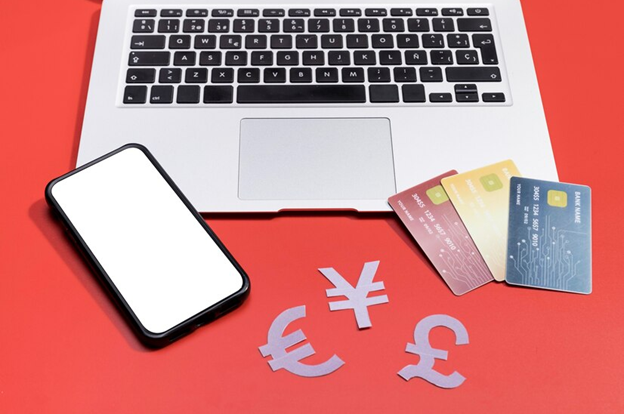As the world of finance continues to evolve, digital wallets have become an essential tool for managing both everyday transactions and digital assets like cryptocurrency. With this rise in digital wallet usage comes an increase in the risk of cyberattacks and fraud. To address these threats, advanced security technologies are now more important than ever. One of the most effective security measures is Multi-Factor Authentication (MFA), a method that has become standard practice in protecting sensitive data and digital assets. For businesses like a crypto prop firm, MFA is an essential safeguard to ensure that the digital assets of clients and users remain secure.
What is Multi-Factor Authentication?
Multi-Factor Authentication (MFA) is a security mechanism that requires users to provide two or more forms of identification before accessing their accounts or making transactions. Unlike traditional username and password systems, MFA adds an extra layer of protection by verifying the user’s identity through multiple factors. These factors typically fall into three categories:
- Something you know: A password, PIN, or passphrase.
- Something you have: A physical device, like a smartphone or security token.
- Something you are: Biometric identifiers, such as fingerprints, facial recognition, or voice patterns.
MFA makes it exponentially harder for unauthorized individuals to gain access to digital wallets or other sensitive information, as it requires more than just one piece of stolen data to breach an account.
The Importance of MFA for Digital Wallets
The growing popularity of digital wallets, especially in the cryptocurrency world, has made them a prime target for cybercriminals. Wallets hold a wealth of valuable information and assets, making them attractive targets for hackers. Whether it’s for storing Bitcoin, Ethereum, or other cryptocurrencies, digital wallets are highly susceptible to attacks.
For users involved in a crypto prop firm, the risks are even higher due to the large sums of money involved in crypto trading. With thousands of dollars—or even millions—on the line, ensuring the security of a digital wallet is crucial. MFA significantly reduces the risk of unauthorized access by requiring more than one method of verification. This additional step can be the difference between a secure transaction and a catastrophic loss of assets.
Advanced MFA Features in Modern Digital Wallets
While traditional MFA methods, such as SMS-based authentication or email verification, have been effective, modern digital wallets have adopted more advanced and secure methods. These innovations in MFA are designed to keep up with the sophistication of cyberattacks. Here are some of the latest advancements in MFA for digital wallets:
1. Biometric Authentication
Biometric authentication has become one of the most advanced forms of MFA, relying on unique physical characteristics such as fingerprints, facial recognition, or iris scans. Since biometric data is specific to each individual, it’s incredibly difficult for hackers to replicate.
For a crypto prop firm, biometric authentication offers an added level of security. Traders can use their fingerprints or facial recognition to access their wallets, ensuring that only authorized individuals can execute high-value transactions. This is particularly crucial for high-stakes crypto trading, where a single unauthorized access attempt could lead to significant losses.
2. Hardware Security Tokens
Hardware security tokens are small physical devices that generate a one-time passcode or authentication code for use in the MFA process. Unlike software-based tokens, hardware security tokens are not connected to the internet, making them much less vulnerable to cyberattacks.
These tokens are an ideal solution for firms dealing with sensitive crypto assets. For a crypto prop firm, using hardware tokens ensures that only authorized personnel can access the firm’s digital wallets, further securing sensitive client assets. Even if a hacker gains access to the firm’s network, they would still need the physical token to complete the login process.
3. Push Notifications and Authenticator Apps
Push notifications and authentication apps like Google Authenticator or Authy provide a dynamic and secure MFA solution. When users attempt to log in to their wallet, a notification is sent to their registered mobile device, prompting them to approve or deny the login attempt.
These methods are especially popular with crypto prop firms because they offer real-time verification. Users can instantly approve or reject any login attempt, ensuring that fraudulent access attempts are blocked as soon as they occur. Moreover, authenticator apps are highly resistant to phishing attacks, making them a preferred choice for securing digital wallets.
4. Behavioral Biometrics
An emerging trend in MFA is the use of behavioral biometrics, which analyzes patterns in how users interact with their devices. This includes factors such as typing speed, mouse movement, and even how users hold their smartphones. While behavioral biometrics alone may not replace other forms of authentication, it can be used as an additional layer of security to flag suspicious behavior.
For a crypto prop firm, this technology can offer real-time protection against fraud by continuously monitoring user behavior and identifying abnormal patterns. If a user’s behavior deviates significantly from their usual habits, an alert can be triggered, requiring additional verification before completing the transaction.
Enhancing User Experience While Maintaining Security
While MFA increases security, it’s also crucial to ensure that it doesn’t disrupt the user experience. Modern digital wallets are designed to offer seamless MFA processes, ensuring that users don’t feel burdened by excessive authentication steps. For a crypto prop firm, balancing security with user convenience is key. By integrating advanced MFA technologies such as biometric authentication or push notifications, firms can ensure that their clients’ wallets are protected without creating friction in their trading experience.
Conclusion
In the world of digital wallets, security is paramount—especially for businesses like crypto prop firms, where financial assets and sensitive information are at constant risk. Advanced Multi-Factor Authentication (MFA) technologies are playing a vital role in protecting digital wallets from cyber threats. With the advent of biometric authentication, hardware tokens, and behavioral biometrics, MFA has become an indispensable tool for ensuring that digital wallets remain secure, even against the most sophisticated attacks.
For crypto traders and firms, adopting robust MFA solutions isn’t just a best practice—it’s a necessity. By investing in the latest MFA innovations, firms can provide their clients with a secure environment for digital asset management, allowing them to focus on trading without fear of cyber threats.


